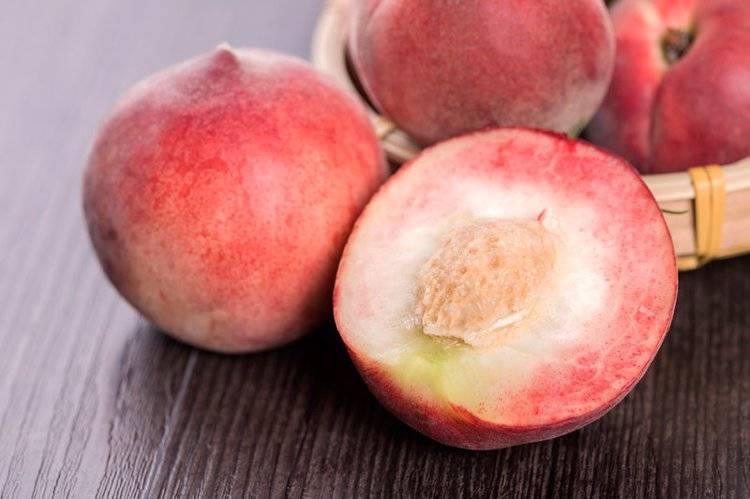In China’s long history of fruits, peaches stand out with their alluring appearance and sweet flesh.
In ancient times, peaches were given a sacred status, believed to be the fruit enjoyed by immortals, symbolizing longevity and good fortune. Thus, in folklore, peaches are also revered as “Immortal Peaches” and “Longevity Fruits.”
Summer is the best season to enjoy peaches. So, what are the benefits of peaches? Does eating them often raise blood sugar levels? Can diabetes patients eat them?
1. Do peaches raise or lower blood sugar?
Some people may worry that peaches, with their sweet flavor, have a high sugar content that could lead to increased blood sugar levels.
In response, Chinese registered dietitian Liu Pingping explains that peaches are a “blood sugar-friendly” fruit with minimal impact on blood sugar, suitable for diabetes patients and those who need to monitor their blood sugar levels.
In terms of sugar content, peaches are not considered high; 100 grams of peach contain about 10 grams of sugar.
Regarding glycemic impact, the glycemic index (GI) of peaches is about 28, which falls within the low GI food range, meaning the sugars in peaches are absorbed slowly, not causing a rapid spike in blood sugar and benefiting its stability.
In fact, peaches are not only friendly to blood sugar but also a fruit with high nutritional value.
Heart protection: Peaches are rich in antioxidants such as vitamin C and vitamin E, which help reduce the risk of cardiovascular diseases.
Blood supplementation: According to ancient medical classics like “Compendium of Materia Medica,” peaches have effects of replenishing energy and blood, nourishing yin, and generating fluids, suitable for symptoms such as deficiency of qi and blood, pale complexion, palpitations, and shortness of breath.
Digestive aid: Peaches are a good source of dietary fiber, which helps promote intestinal health and prevent constipation.
Potassium supplementation: Peaches are rich in potassium, containing 127 milligrams per 100 grams, while the sodium content is very low, at just 1.7 milligrams per 100 grams, making them an ideal choice for replenishing fluids and electrolytes in summer.
2. Eating peaches “nourishes” you, but eating them incorrectly “harms” you; remember the five “don’ts.”
Peaches are praised as the “best fruit under heaven,” a delicious and healthy summer fruit choice. However, there are rules for eating peaches; mastering the “five don’ts” will help you avoid health pitfalls.
1. Do not eat unripe peaches.
Unripe peaches taste sour and astringent, with a harder texture, unlike ripe peaches, which are sweet and soft.
More importantly, studies have pointed out that both the flesh and the pit of unripe peaches contain a compound called amygdalin.
In the stomach, under the action of amygdalinase and gastric acid, amygdalin breaks down and produces toxic cyanide, which can lead to dizziness, palpitations, fever, decreased appetite, and diarrhea. In severe cases, the toxicity of cyanide may affect the central nervous system, causing coma and seizures.
2. Do not juice peaches.
When peaches are turned into juice, some important nutrients, such as vitamin C and dietary fiber, may be lost. Moreover, the sugars in juice become “free sugars,” which are different from the “endogenous sugars” found in the original peaches; free sugars can cause a rapid increase in blood sugar levels.
Additionally, it is easier to drink juice—people may find it hard to eat two large peaches, but it’s easy to finish the juice from them, which not only hinders blood sugar control but also leads to excessive caloric intake, making weight gain more likely.
3. Do not eat peaches directly.


